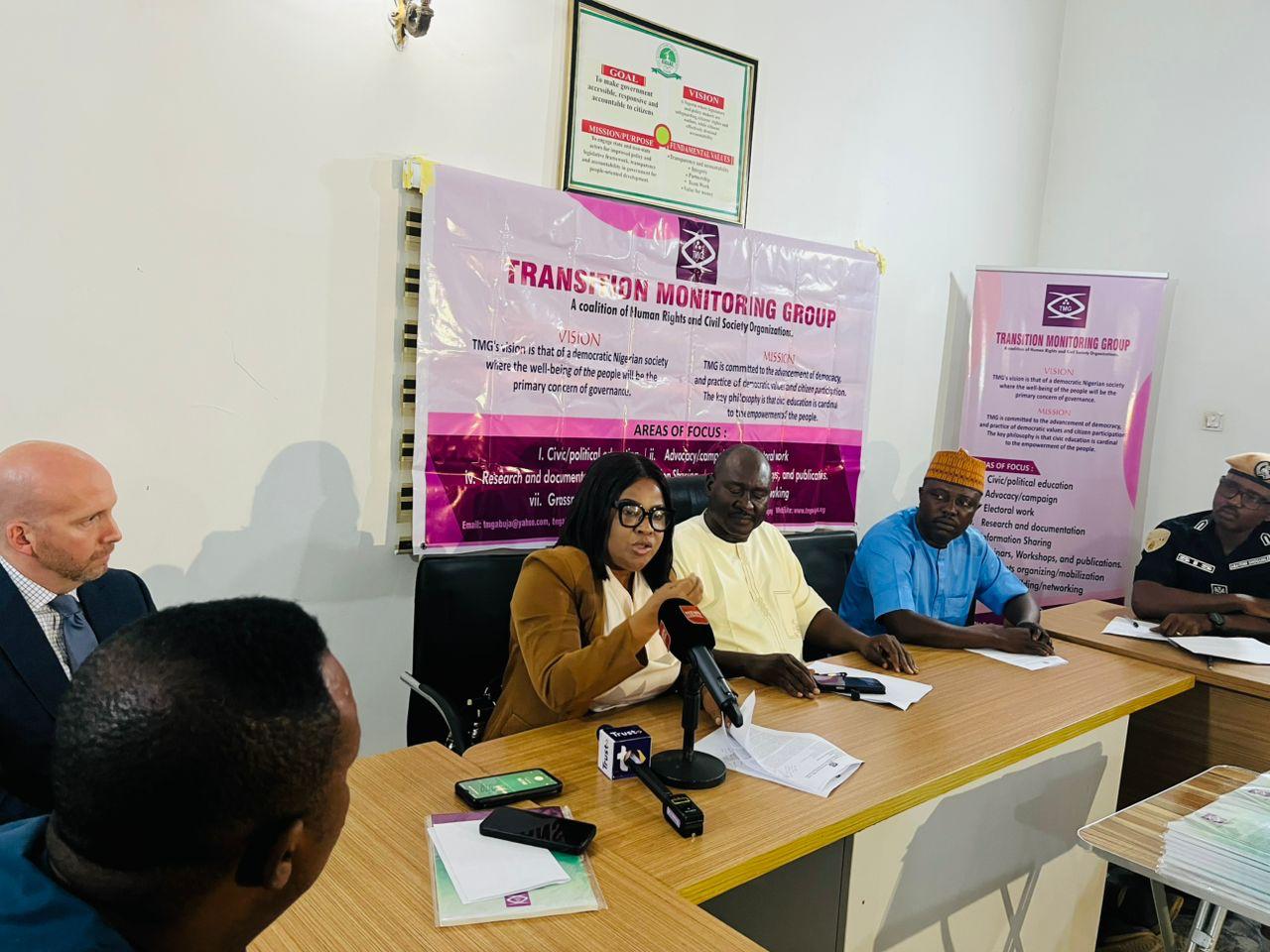Share the post "Ahead of 2027 Polls, TMG Launches 2023 Election Report, Calls for Inclusive Electoral Reforms"
Abuja, Nigeria – June 11, 2025 — As Nigeria gradually gears up for the 2027 general elections, the Transition Monitoring Group (TMG), a leading coalition of civil society organizations, has officially launched its report on the 2023 general elections. The launch event was held at the CISLAC Conference Hall in Abuja and featured a strong call for urgent and inclusive electoral reforms to safeguard Nigeria’s democracy.
The report, titled “Telescoping Nigeria’s Elections: 2023 Election Cycle in Perspective,” captures the realities of the 2023 elections and the subsequent political and judicial developments that shaped their outcomes.
Speaking at the event, the Chairman of TMG, Auwal Ibrahim Musa (Rafsanjani), emphasized that while electoral reforms and innovations such as the BVAS, IReV, and amendments to the Electoral Act were meant to bolster the credibility of Nigeria’s elections, the 2023 general election left many Nigerians disillusioned.

“The 2023 general election was supposed to become the benchmark for election transparency and credibility. However, it left most Nigerians questioning the way forward for democratization in the country,” Rafsanjani said.
He highlighted TMG’s pivotal role in electoral observation and voter sensitization, made possible in part through support from USAID under the Strengthening Civic Advocacy and Local Engagement (SCALE) project. Through this, TMG was able to monitor electoral processes across all 774 local government areas in Nigeria, assessing the roles of INEC, security agencies, political parties, and voters.
The report not only reviews the conduct of the elections but also delves into the post-election judicial processes that ultimately determined several outcomes, raising serious questions about the independence and credibility of the judiciary.
“Should elections be decided by the ballots or by courtroom technicalities?” Rafsanjani asked. “As the judiciary suffered reputational damage, so did INEC — if not worse.”
According to him, the recently concluded off-cycle elections in Kogi, Bayelsa, and Imo provided further opportunities for introspection. TMG’s findings suggest these elections failed to significantly improve upon the general election, thus underscoring the need for deeper institutional reforms.
With 2027 on the horizon, TMG expressed serious concerns about Nigeria’s shrinking political space and the growing threat of one-party dominance, as politicians continue to decamp en masse.
“The ideals of fair competition in democracy are under threat,” Rafsanjani warned. “We are witnessing the dismantling of the multi-party system, which weakens the electorate’s ability to choose freely.”
He urged stakeholders — including civil society, development partners, and the international community — to act swiftly and support grassroots democratic institutions to ensure free and fair elections in 2027.
“It is not enough to mobilize voters and observe elections. We must build a system where the independent choices of citizens are the key deciding factor in our elections,” he said.
TMG concluded the launch by reaffirming its commitment to strengthening Nigeria’s democracy and urged all stakeholders to take the report’s recommendations seriously as a roadmap toward credible elections in 2027.
Share the post "Ahead of 2027 Polls, TMG Launches 2023 Election Report, Calls for Inclusive Electoral Reforms"
